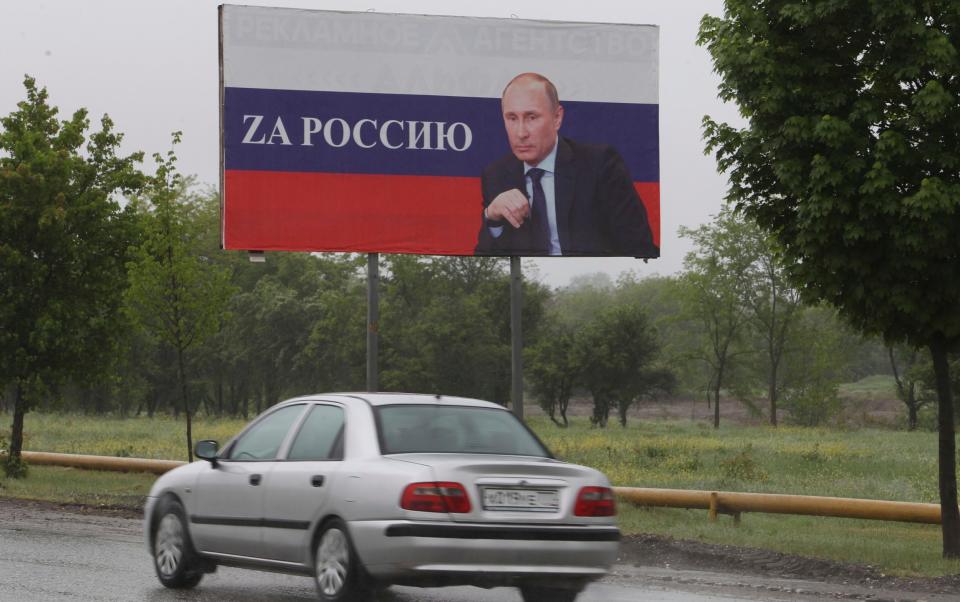Terrified Chechens flee to avoid Ukraine call-up as casualties mount

Men in Chechnya are fleeing abroad to avoid being called up to fight in Ukraine, as casualties rise among the forces led by Ramzan Kadyrov, the tough-talking Chechen leader.
Residents of Chechnya, a republic in Russia's south, told The Telegraph that the growing number of funerals for local fighters and the sight of badly injured young men are turning some people against the war.
One woman in Grozny, Chechnya's capital, told of a funeral where there were four bodies.
"They were from the Kadyrov regiment, who fought in Ukraine,” she said. “I am very upset because I knew them."
This apparent shift in support, even if only by a small minority of the Chechen population, is important because Kadyrov and his fighters - who swear personal loyalty to him and are known as Kadyrovsky - are key allies for Vladimir Putin, the Russian president.
The Kremlin has banned talk of war and instead uses the euphemism "special operation".
The woman in Grozny said that dire economic conditions in Chechnya were pushing men into volunteering to fight in Ukraine.
No one in Chechnya is happy about this
"People agreed to this dangerous work because of the hopelessness of things here," she said. "But nobody knew that they would die in someone else's special operation."
Grozny has been rebuilt since it was flattened by the Russian army in two wars in the 1990s and early 2000s. However, the pain of these wars is still fresh.
Another woman in Grozny said that she was against the war, because she had lost relatives in the Chechen wars. Another said that her son had returned from Ukraine badly injured.
"I've been crying all day,” she said. “His leg was torn off by a shell. Of course, no one in Chechnya is happy about this special operation."
The Z and V insignia of Russia's main battle groups in Ukraine, now adopted by pro-war supporters in Russia, have been plastered across buildings in Grozny. Seemingly everywhere, there are posters of Kadyrov in military uniform and calling for volunteers.
The recruitment drive is based on cash and loyalty to Kadyrov and Putin. Putin is popular in Chechnya because he bankrolled the reconstruction of the region after declaring victory in the second Chechen war of 1999 to 2000. He has kept the region stable by allowing Kadyrov to crush dissenters and rebels.

One 61-year-old man in Grozny said that men receive one week's training and are paid 300,000 roubles (£3,600) on the day they leave Chechnya to fight in Ukraine. He also said that these fighters receive $50 (£40) every day they fight. The average monthly salary in Chechnya is around $380 (£300) per month.
Even so, he said people were worried that a general mobilisation was imminent and that some men were fleeing. Most of these young Chechen men have fled to central Russia or Turkey, which has a large Chechen diaspora. Some have also travelled to live with relatives in Europe.
"There are rumours of mass mobilisation,” he said. “Today, many young guys who do not want to go to war are leaving Chechnya.
“Of course, 300,000 roubles is a lot of money for those ready to volunteer. This is the only way for them to earn a normal living, although at the potential cost of their own lives."
But the state propaganda machine is still strong in Chechnya and support for the war is not difficult to find. Akmet, 52, said that war was justified to defend Russia against Nazis in Ukraine, a key reason that Putin has given for the invasion.
“The fact that Putin decided to launch a special military operation is the right decision to protect our people in the Donbas and prevent bloodshed in Russia itself," he said.

 Yahoo News
Yahoo News 
